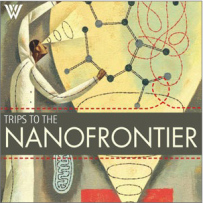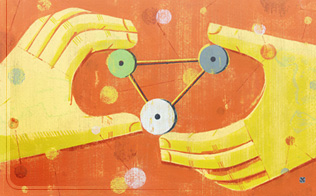Project news
November 7, 2008
Synthetic Biology on the Nanofrontier?
Episode 6 - Synthetic Biology on the NanoFrontier?

Keasling is working in synthetic biology, an emerging area of research that uses advanced science and engineering to make or redesign living organisms, such as bacteria, so that they can carry out specific functions.
“From a chemicals point of view … I see synthetic biology as being the route to a whole new area of synthetic chemistry,” says the Berkeley-based scientist interviewed in the current episode of Trips To The NanoFrontier. The series is hosted by Karen Schmidt, a longtime science journalist and author of the publication NanoFrontiers: Visions for the Future of Nanotechnology.
In addition to discussing the potential benefits of synthetic biology, Keasling, who is working on a new anti-malarial drug, addresses the fears of misuse and ethical concerns regarding synthetic biology. “ In the future, when we have a lot of ‘off-the-shelf’ components, how are those going to impact our ability to manipulate organisms and one’s ability to manipulate an organism for evil, as opposed to good?” he asks.
But the issue of over-regulation stifling innovation is a concern for Keasling, who has advocated scientific self-regulation and other measures to limit synthetic biology materials from getting into the wrong hands.
“What we don’t want to see happen is see the industry become so regulated that we can’t do the necessary biological engineering we need to do to save lives and save the environment … We want to have balanced regulation.”
